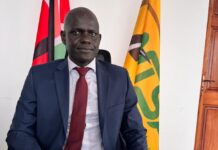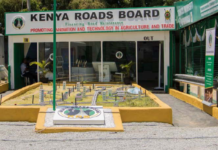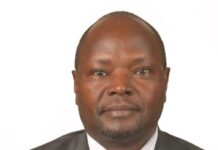Interior Cabinet Secretary Kipchumba Murkomen has brought the government’s Jukwaa la Usalama initiative to Nairobi after touring 46 counties, vowing to confront insecurity through both law enforcement and social reforms.
The grassroots engagement forums, which have been running across the country for months, are designed to map out security and social challenges facing different regions.
Across the counties, recurring concerns have included gender-based violence, teenage pregnancies, alcoholism, drug abuse, and organised crime.
Murkomen has assured Kenyans that the government will combine policing with community-led interventions to tackle the capital’s mounting security threats.
“We cannot police our way out of these challenges,” Murkomen said. “It requires a bigger societal conversation, mutual accountability, and reforms that give ordinary Kenyans the dignity and safety they deserve.”
The Nairobi edition of Jukwaa la Usalama comes at a time when city residents have raised alarm over a surge in violent robberies.
Several gangs have been reported targeting commuters and businesses, forcing police to step up patrols.
Murkomen warned political leaders accused of protecting or financing criminal groups that they would face prosecution.
“We will dismantle the gangs, go after their financiers, and hold accountable those who have been hiring them,” he said.
At the national level, the Interior Ministry has launched a 100-day Rapid Results Initiative to combat second-generation alcohol and narcotics.
Murkomen described the illicit trade as a national security threat, accusing rogue officials, police officers, and politicians of complicity.
A new multi-agency team — drawing members from the National Police Service, NACADA, the Kenya Revenue Authority (KRA) and the Kenya Bureau of Standards (KEBS) — will lead sting operations against illegal manufacturers, distributors and smugglers.
“Any officer or politician found culpable will face arrest,” the CS warned. “Within the next 100 days, we will roll out a nationwide operation to ensure this menace is addressed once and for all.”
Linked to the alcohol and drug crisis are rising cases of suicide, mental health struggles and gender-based violence.
Murkomen condemned attempts to settle sexual offences through family negotiations, insisting perpetrators must face justice.
The CS also announced intensified disarmament operations, citing a two-week amnesty for individuals holding illegal weapons.
He said Inspector General of Police Douglas Kanja has been directed to lead intelligence-driven operations to recover firearms, including one recently used in the killing of an assistant chief in Migori.
“These guns have caused untold suffering,” Murkomen said. “Those who defy this offer will face dire consequences.”
Murkomen also acknowledged challenges facing police officers, including fuel shortages that hinder operations.
He pledged to increase allocations and work with counties to improve conditions in security camps.
In a gender-focused pledge, the CS backed calls for maternity uniforms for female officers, saying it was unacceptable that expectant officers were forced to take leave or wear civilian clothes.
The Nairobi forum is expected to address issues unique to the capital, from organised gangs and illicit alcohol to cybercrime and human trafficking.
Authorities recently uncovered a transnational trafficking ring operating from Athi River, where 21 Kenyans were rescued from a cartel that lured victims with job offers abroad before forcing them into combat roles in Russia’s war in Ukraine.
Murkomen said the government is determined to confront insecurity from all angles — enforcement, reforms and community partnership.
“This matter is about protecting our people,” he said. “We want every Kenyan child, woman and family to live in dignity and safety.”



















